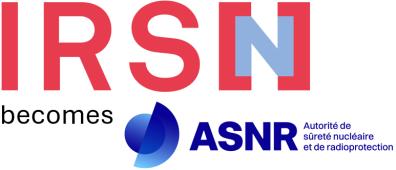MELODI
MELODI (Multidisciplinary European Low Dose Initiative) is an association that brings together the main European parties involved in research on the risks associated with low doses of ionising radiation. Founded in 2009 and currently chaired by Andrzej Wojcik from Stockholm University, MELODI was established as a registered association with 15 members, and now includes several dozen of members from European and even non-European organisations. Its main purpose is to help structure and share the resources allocated to research in this field at European level.
Low doses: necessary research
The development of medical acts that use radiation makes the issue of the health effects of low doses ever more important. Even though at low dose level of ionising radiation no health effect has been observed in the vast majority of epidemiological studies (i.e., there are no statistical differences that could be showed between exposed and unexposed groups), the absence of detectable effects does not mean that there are no risks. To allow for simple risk management, and in a spirit of prudence, the international commissions used an extrapolation of observed effects at high doses as a basis to draw up standards. This extrapolation, called the "linear no-threshold model", is based on the proportional relationship between the risk and the received doses.
The creation of MELODI is the result of this globally increasing preoccupation: of society and the public on the one hand, and of the scientific community and international research organisations on the other. Considering the complexity of the biological mechanisms in question, it is fundamental to create a long-term alliance which combines the available scientific resources at the European, and even global level, with a multi-disciplinary approach. Five European Member States (Finland with STUK, France with IRSN and CEA, Germany with BfS, Italy with ISS and the United Kingdom with the Health Protection Agency), in association with the European Commission, created a think tank in 2008, the HLEG (High level expert group on low dose risk research), which then proceeded to identify the priority research themes (see below SRA) and recommended that this research be governed by a structure associating the different European stakeholders in this field: MELODI. This transnational European governance structure was composed, in 2012, of 19 national bodies of which IRSN in France, and a committee of four members chaired by Jacques Repussard, then IRSN’s Director General, for the 2010-2013 period.
Role, objectives and operation
The main role of MELODI is to integrate national research programmes into an overall research strategy on low doses, i.e., to structure the sharing on the European level of financial resources, working tools, infrastructures, teams and research skills. This research strategy is described in a Strategic Research Agenda (SRA).
The objectives of MELODI are:
-
to identify the priorities for research on low doses,
-
to share the organisations' research programmes,
-
to harmonise research methodology,
-
to ensure the long-term funding of research on low doses by bringing together available resources,
-
to have a overall vision of the investments made in infrastructure, knowledge management, education and training,
-
to ensure the interface between all stakeholders (research end-users, scientific community...),
-
to monitor the emergence of new needs,
-
to ensure the efficient implementation of collaboration between European research programmes and programmes external to the European Union.
Every year the MELODI association organises an international conference. On this occasion the recent progress in research on the effects of low doses of ionising radiation are presented to the participants as well as the main developments foreseen for the SRA. In order to ensure an active as possible participation of scientists, the think tanks are invited to work on specific themes during the conference and to present their conclusions at the end of the conference.
The DoReMi network of excellence (Low dose research towards multidisciplinary integration, 2010-2015), the OPERRA project (Open Project for the European Radiation Research Area, 2013-2017), and the CONCERT H2020 European Joint Programme for the integration of radiation protection research (2015-2020), successively supported MELODI as an operational structure.
The Strategic Research Agenda (SRA)
In October 2011 the MELODI association set up the first version of a Strategic Research Agenda (SRA), which prioritises research on low doses of ionising radiation over twenty years, in all disciplines in Europe. This agenda is structured into six key themes identified by the HLEG :
- the shape of dose-response curves,
-
the individual sensitivity,
-
the non-cancer effects of ionising radiation,
-
the tissue sensitivity to cancer,
-
the risks related to internal exposure,
-
the quality of radiation.
The selected research strategy is global and takes into consideration the multiple relationships that exist between the research issues and objectives. This especially integrates mechanistic and modelling studies at all levels, epidemiology, dosimetry but also to conciliate recent findings in radiobiology (e.g.: non-targeted effects) and more generally in biology (e.g.: system biology, etc.) and to use the most recent investigation techniques (e.g.: tracer biology, trace analysis, microdosimetry).
The SRA is regularly updated depending on the evolution of the research carried out by MELODI and the results of research, as well as thanks to the discussions within the DoReMi network of excellence, the OPERRA project, and the CONCERT Joint Research Programme on the research resources and the generation of new multinational and interdisciplinary projects.
